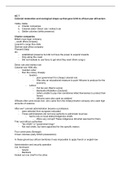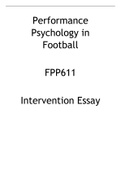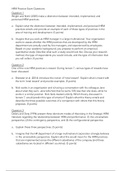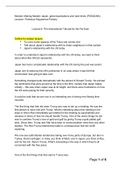Colonial restoration and ecological shape up that gave birth to african pan africanism
1900s-1940s
a. Charter companies
b. Colonial state> Direct rule / indirect rule
c. Settler colonies (white presence)
Charter companies
British royal niger company
,, south africa company
Leopold’s congo free state
German east africa company
Filonardi (Italy)
etc.
- established presence but did not have the power to expand inwards.
- Only along the coast
- Did not hesitate to use force to get what they want (think congo)
Direct rule and indirect rule
Colonial rule 1900-40s
- maintain order
- Run the colony cheaply
- taxation
- poor government for (cheap) colonial rule
- Was also an educational measure to push Africans to produce for the
economy.
- Labour
- Hut tax war (Sierra Leone)
- Bambatha Rebellion (Zululand)
- (when unable to pay men sometimes killed themselves to protect their
honor)
- Africans were also used as soldiers!
Officials often were brutal men, who came from the military/charter company who used high
amounts of violence.
After ww1 colonial administration became a profession.
- were selected from european educated.
- These administrators did not have authority to administer local law.
- had to rely on local eldery/indigenous chiefs
- Were very corrupt! These indigenous did what was best for them.
THe rural african authorities
- “tax chiefs” or “government dogs”
- Not real chiefs, but were appointed for this specific reason.
Four communes (Senegal)
Crown colonies (early british possessions)
In these ginormous african territories it was impossible to apply french or english law
Administration and security operation
Col. Archinard
- tukulor
- Bambara
Kicked out one chief for the other.
,Mahdist movement (sudan)
- war against british from islamist “radicals”
Direct rule was a colonial practice. Who did it? Especially the french, spanish and
portuguese.
- believed very much in central government
- Heavier administrative apparatus.
example, 1920
Côte d’ivoire: 1 french official = 18k people
South africa: 1 english official = 70 k people
Direct rule for the french
Gouverneur General
(aof + Aef) - colonial territory
V
Cercles (commandant)
V
Subdivisions (administrateur chef)
V
Cantons (chef de canton)
(selected along the educated local)
V
Villages (chef de village)
Is a bureaucratic pyramid. The further down you go, the more of the position there are.
(way more chef the village then Cercles)
Indirect rule
British used it for the first time in northern nigeria (in the sokoto caliphate)
- before ww1,
- then the british extended this kind of administration to other colonies
Frederick lugard designed this indirect system.
- was not democratic. Did not like the soft administration in southern nigeria.
- Lugard realised that the caliphate institutions were authoritarian. so they could be
useful for him.
- Lugard was racist. So the caliphate was above the lower blacks”
- The caliphate could continue ruling under the flag of the british.
- But they still had to account to the british.
In other parts of Africa these systems were destroyed by the colonizers.
The invention of African Traditions (Chiefs, kings, etc)
- British restored some kingdoms.
- Oyo Kingdom (Alfin)
- South eastern nigeria
- Stateless societies had no chiefs and the british invented new ones
- Igbo WOmen Rebellion
Similar problems were found in tangalika and north rhodesia
- more power to local chiefs
Indirect rule used to reduce power of local chiefs who were put under to the rule of one kings
or paramount chiefs
- basutoland
- Bechuanaland
- Swaziland
,In the gold coast it was also used
Restoration of the Asante confederacy to limit power of Youngmen’s Associations (educated,
middle class Africans)
- These started to question british colonial rule
Belgians used indirect rule in Rwanda and burundi
- tutsi monarchies’ rule
Italians made use of Sultans in coastal somalia
Forced labour was abolished by europeans. But since it's an african tradition african chiefs
were allowed to use it.
- Kind of and indirect form of slavery
Moroccan monarchy and tunisian pashas’ power
- taxation
Évolue or assimilation
- Africans who attained european citizenship who thus become equal for the law.
For indirect rule they are not able to become citizens of a european state
- they have no rights to individual right, only as a group led by a king. Who is a
intermediate to the europeans
Settler colonies
colonial rules mostly did by africans self.
- Only top positions were europeans
Not true in Settler colonies
- Examples:
- British: south africa, RHodesia and Kenia
- French: Algeria
- Portuguese: angola, mozambique
- Some more tiny ones here and there.
However apart from Algeria and South Africa we should not exaggerate the numbers.
- where they did settle they settled in the highlands.
- There were not as much diseases in this area’s
Not that much about numbers, more about political administration
In settler colonies indirect rule was not possible
- It would make either settlers or chiefs too powerful.
four different solutions were found.
here we’ll talk about algeria.
- French started to attract french settlers into algeria.
- On one point it even became a department of france.
- Muslims, arabs, berbers etc. were denied of the rights of whites in algiers.
- indigenous algerians had to renounce their religion if they wanted to become french.
- about 1 mill settlers in algiers (⅕ of population)
In Angola it was about the same
, Southern Rhodesia white settled since the 19th century. Here whites used chiefs purely as
government agents but always refusing to restore kingships.
- also in kenya.
- chiefs were under strict control of whites
Settler colonies created racially-based forms of government.
- often led to guerilla warfare.
1935
Italy had power in libya and eritrea/somalia
- had nowhere the same power as the other colonial powers
Italians were famously defeated in Adowa in 1896
in 1922 the fascist took over power.
- they tried to wash out the shame of Adowa
Italy tried to conquer Ethiopia.
- Had to resolve work problems and immigration problems.
- Many italians left.
- They wanted to populate Ethiopia with Italians.
Italian invasion of Ethiopia
- league of Nations sanctions against italy
- italy left the league of nations
Ethiopian emperor went into exile in england.
Haile Selassie, emperor of Ethiopia.
- Ethiopians wanted him to stay to fight against Italians.
The reaction to italian invasion were worldwide and gave rebirth of the pan-african
movements among African Americans and Africans.
- It was the last independent african territory.
This was a moment of uproar.
- It awoken Pan-Africanism
- White governments did nothing to stop white-supremacist
Many protest in Harlem/new york and moscow (and other colonial capitals as London)
For some the protest against the ethiopian war was the beginning of the end of colonialism
- New generation of pan african leaders
- Bayen, robinson, james and huggins
The second world war did a lot for (de)colonization process.
- all french west-africa followed the vichy government.
- french chad did not.
- its government declared allegiance to the free french government (de Gaulle)
- and other equatorial african countries
Felix Eboue did not want to surrender to the germans/allies of the italians.
The war in africa was very important to the victory
Charles de Gaulle
SPeech of Brazzaville (french equatorial africa)
- a fight for freedom and thus for freedom of africans (emancipation should not be
delayed).













